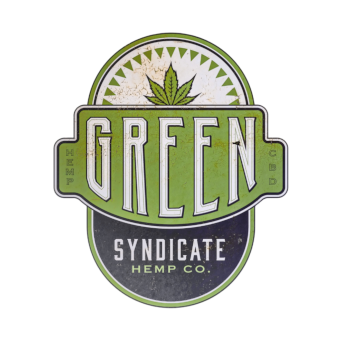Managing THC-Induced Panic Attacks: Traditional Remedies vs. CBG and CBD
Experiencing a panic attack from consuming too much THC can be a daunting and overwhelming ordeal. (Keep in mind, it’s happened to the best of us!) The heightened feelings of anxiety, paranoia, and discomfort can lead to a desperate search for relief. While some individuals may have their go-to strategies for managing these moments, it’s essential to understand both traditional remedies and modern cannabinoid therapies like CBD (Cannabidiol) and CBG (Cannabigerol) as potential options. We aim to provide an in-depth look at these approaches, helping you navigate the best ways to cope with a THC-induced panic attack. Most importantly, a little preparation can lead to a much more enjoyable experience for all.
Understanding THC and Its Effects
Tetrahydrocannabinol (THC) is the primary psychoactive compound in cannabis responsible for the euphoric “high” that many users seek. However, THC can also provoke anxiety and panic attacks, particularly in inexperienced users or those who consume larger doses than they are accustomed to. Research indicates that THC activates the CB1 receptors in the endocannabinoid system, which can exacerbate feelings of anxiety and paranoia in some individuals. Symptoms of a bad high can include rapid heart rate, feelings of paranoia, disorientation, and intense anxiety. Recognizing these symptoms is crucial for managing them effectively.
Traditional Remedies for THC-Induced Anxiety
1. Lemon: One popular home remedy for combating anxiety is lemon. The bright scent of lemon is known to have calming effects, and some users believe that consuming lemon juice can help alleviate anxiety symptoms. A study published in the Journal of Food Science found that lemon balm, which is part of the mint family, has been shown to reduce anxiety and improve mood. However, while lemon and lemon balm have anecdotal support, extensive clinical studies specifically focusing on lemon juice as a remedy for THC-induced anxiety remain limited.
2. Drinking Water: Hydration is essential when coping with any discomfort, including a bad high. Drinking water can help you feel more centered and may alleviate some physical symptoms, such as dry mouth, that often accompany THC consumption. A study from the Journal of Psychopharmacology found that dehydration can exacerbate feelings of anxiety. While the benefits of hydration are well-established, specific research on drinking water as a remedy for THC-induced anxiety is sparse.
3. Sleep: Sometimes, the best remedy is simply to rest. If you find yourself overwhelmed, lying down in a safe and quiet space can provide a welcome reprieve. Sleep allows your body and mind to reset, reducing anxiety levels. Research has shown that sleep deprivation can heighten anxiety and emotional reactivity. While the calming effects of sleep are recognized, more targeted studies are needed to determine its effectiveness in alleviating THC-induced panic specifically.
4. Black Peppercorn: Interestingly, black peppercorn has been touted as a natural remedy for managing THC-induced anxiety. The compound beta-caryophyllene found in black pepper may help counteract the psychoactive effects of THC. Studies have suggested that beta-caryophyllene has anti-anxiety and anti-inflammatory properties. However, while some users report benefits, comprehensive clinical research specifically linking black peppercorn to relief from THC-induced anxiety is still lacking.
The Role of CBD and CBG in Managing THC-Induced Panic
As interest in cannabinoid therapies grows, Broad Spectrum (without THC) CBD and CBG emerge as promising alternatives for alleviating anxiety and panic attacks related to THC consumption. Here’s a closer look at these cannabinoids and how they can help:
1. Mechanism of Action: CBD and CBG interact with the endocannabinoid system, which is involved in regulating mood, stress, and anxiety. Unlike THC, both CBD and CBG, on their own, are non-psychoactive, meaning they do not produce a high. CBD has been shown to interact with serotonin receptors (5-HT1A), which are critical for regulating mood and anxiety. CBG also appears to have a promising role in modulating anxiety through similar pathways.
2. Anxiolytic Properties: Research suggests that CBD has significant anxiolytic (anxiety-reducing) properties. A systematic review in Neurotherapeutics indicates that CBD can help reduce anxiety in both human and animal studies. Many users report that consuming CBD oil or products rich in CBD during a panic attack helps them feel more grounded and reduces the intensity of their symptoms. Early studies on CBG indicate it may also exhibit anxiolytic properties, although more research is needed to fully understand its effects.
3. Speed of Relief: For individuals experiencing a panic attack due to excessive THC, the quick onset of CBD can be a considerable advantage. Many users find that taking CBD during a panic attack provides faster relief compared to traditional remedies, which may take longer to take effect. A study published in *Frontiers in Pharmacology* found that CBD can exert its effects within minutes when inhaled or taken sublingually.
4. Safety and Side Effects: CBD and CBG are generally considered safe and well-tolerated, with fewer side effects than some traditional remedies. Some say, that while CBD is generally well-tolerated, it can interact with certain medications, underscoring the importance of consulting with a healthcare provider before use.
5. Synergy with Traditional Remedies: Combining traditional remedies with CBD or CBG might offer an even more effective approach. For instance, drinking water while consuming CBD could create a holistic strategy to manage panic attacks. Similarly, using lemon or black peppercorn in conjunction with CBD may enhance the overall calming experience.
Conclusion
Navigating a panic attack from too much THC can be a challenging experience, but understanding the various remedies available can empower individuals to find relief. Traditional methods like lemon, hydration, sleep, and black peppercorn offer time-honored approaches to managing anxiety, but the scientific support for their effectiveness in the context of THC-induced panic attacks is still developing. And although CBD and CBG present modern alternatives grounded in some scientific research, demonstrating significant potential for alleviating anxiety symptoms, more work still needs to be done here.
Ultimately, the most effective strategy may involve a combination of both traditional remedies and cannabinoid therapies. By being informed and prepared, individuals can take proactive steps to manage their experiences with THC and cultivate a greater sense of control over their own well-being. If you consistently struggle with anxiety related to cannabis use, consider consulting a healthcare professional to explore the best options tailored to your needs.
Remember, when consuming THC in any form, start with a low dosage, take it slow, and learn how you personally react. This process will allow you to refine intake so you can completely enjoy the full benefits of cannabis and achieve the experience you desire.
Although these statements and remedies are not clinically proven and have not been endorsed by the FDA, we would love to hear what works for you.


